Updated: 7/28/21
If you’re a Granger customer, you’ve seen our Waste Acceptance Guidelines on multiple occasions. We publish them at least annually to remind customers what shouldn’t go in the trash. If you’ve ever wondered why some of these items are prohibited or what you can do with them instead, please keep reading.
Open, empty or used beverage containers (with a deposit)
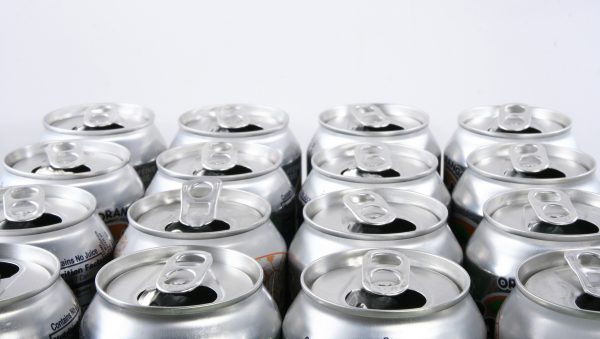 Other than encouraging recycling, what possible reason could we have for wanting to keep pop cans and bottles out of the trash? Well, besides the fact that it’s a total waste of 10 cents, there’s the law to consider. It’s actually illegal in Michigan to dispose of returnable beverage containers in a landfill. According to Public Act 34 of 2004, your options for disposing of them are to recycle them or return them, which are both better ideas than throwing them in the landfill.
Other than encouraging recycling, what possible reason could we have for wanting to keep pop cans and bottles out of the trash? Well, besides the fact that it’s a total waste of 10 cents, there’s the law to consider. It’s actually illegal in Michigan to dispose of returnable beverage containers in a landfill. According to Public Act 34 of 2004, your options for disposing of them are to recycle them or return them, which are both better ideas than throwing them in the landfill.
Whole car or truck tires (scrap tires)
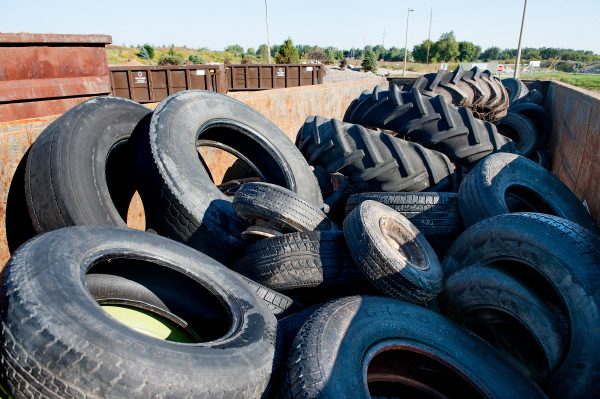 Just like putting returnable containers in the landfill, it’s also against the law to put a whole motor vehicle tire in a landfill in Michigan.
Just like putting returnable containers in the landfill, it’s also against the law to put a whole motor vehicle tire in a landfill in Michigan.
Related Read: How to Get Rid of Old Tires
Grass clippings or leaves
 Not to sound like a broken record, but it’s also against the law to put yard waste, such as grass clippings or leaves, in the landfill. That’s why we pick up yard waste collection in a different truck that doesn’t end up in the landfill.
Not to sound like a broken record, but it’s also against the law to put yard waste, such as grass clippings or leaves, in the landfill. That’s why we pick up yard waste collection in a different truck that doesn’t end up in the landfill.
Related Reads: Yard Waste: What It Is and What To Do With It and Working Hard in the Yard? Here’s What to Do with the Waste
Used oil
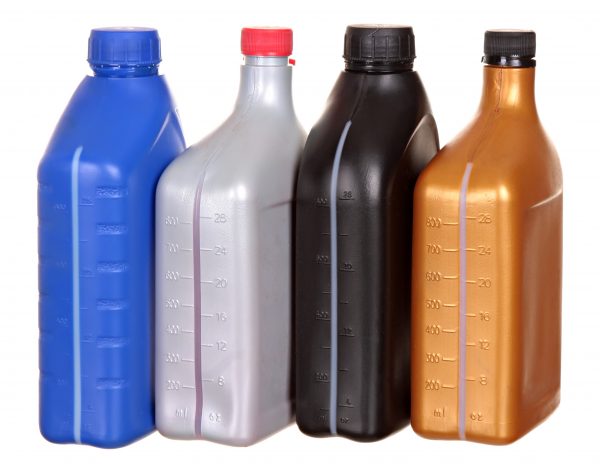 Used oil is also prohibited by Michigan law from being disposed of in landfills. The law defines used oil as “any oil which has been refined from crude oil, or any synthetic oil, which has been used and as a result of use, is contaminated with physical or chemical impurities.” This includes not only motor oil, but hydraulic oil and transmission and brake fluids, among others. Oil filters can be placed in your trash, but they must be drained for 24 hours first. Luckily, many service stations and auto parts stores will will take your used oil. If you’re handy and like to do your own auto maintenance, see this document provided by the Michigan Department of Environment, Great Lakes and Energy for additional guidance.
Used oil is also prohibited by Michigan law from being disposed of in landfills. The law defines used oil as “any oil which has been refined from crude oil, or any synthetic oil, which has been used and as a result of use, is contaminated with physical or chemical impurities.” This includes not only motor oil, but hydraulic oil and transmission and brake fluids, among others. Oil filters can be placed in your trash, but they must be drained for 24 hours first. Luckily, many service stations and auto parts stores will will take your used oil. If you’re handy and like to do your own auto maintenance, see this document provided by the Michigan Department of Environment, Great Lakes and Energy for additional guidance.
Car or truck batteries
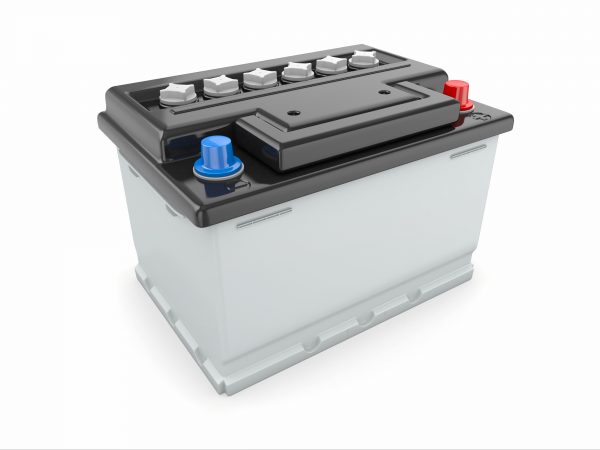
Like many of the items on our prohibited materials list, lead acid batteries such as those in your vehicle are prohibited by state law from being disposed of in a landfill.
Related Read: What to Do with Old Batteries
Paint
 Putting paint in the landfill? There ought to be a law! And there is. Oil-based paint is considered a household hazardous waste and can’t go into our landfill. Water-based (latex) paint is allowed, but only if it is dried before being put in the trash.
Putting paint in the landfill? There ought to be a law! And there is. Oil-based paint is considered a household hazardous waste and can’t go into our landfill. Water-based (latex) paint is allowed, but only if it is dried before being put in the trash.
Related Read: What to Do with Old Paint
Refrigerants/Freon
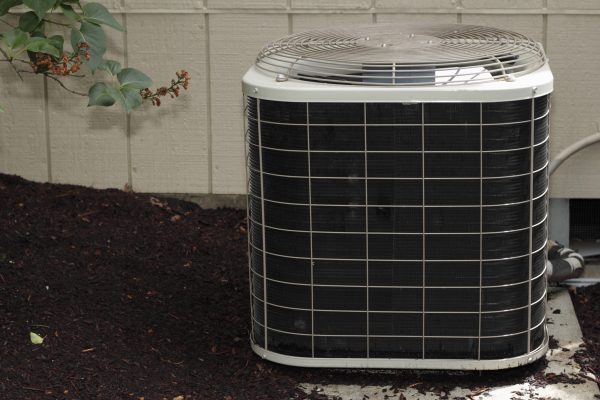 According to state law, Freon and other refrigerants must be removed before appliances can be disposed of or recycled.
According to state law, Freon and other refrigerants must be removed before appliances can be disposed of or recycled.
Related Read: Easy Options for Ditching Bulky, Old Appliances
Empty drums
 According to Michigan state law, in order to be disposed of in a landfill in Michigan, drums must be full of solid waste or crushed.
According to Michigan state law, in order to be disposed of in a landfill in Michigan, drums must be full of solid waste or crushed.
Explosives, ammunition or firearms
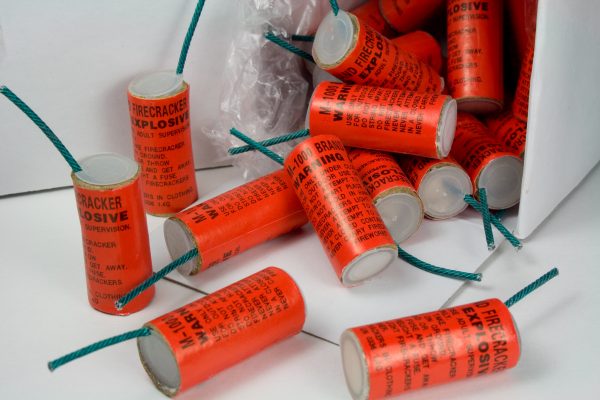 These items are not only dangerous to transport in a garbage truck; they’re not allowed in the landfill. Some disposal options may be available in your area. Contact your local police department to see if they take these items or contact your local municipality or township to find out about collection of special waste materials like these.
These items are not only dangerous to transport in a garbage truck; they’re not allowed in the landfill. Some disposal options may be available in your area. Contact your local police department to see if they take these items or contact your local municipality or township to find out about collection of special waste materials like these.
Propane or other compressed gas tanks (unless empty and disabled)

Tanks like these are under pressure and can explode. They are very dangerous inside our trucks and in the landfill.
Related Read: The Propane Tank is Empty! Now what?
These rules are here to help keep our associates, customers and our communities safe and protect our environmental resources. If you’re ever in doubt about whether or not something can go in your trash, just ask. Contact us at [email protected].
Related Resources
